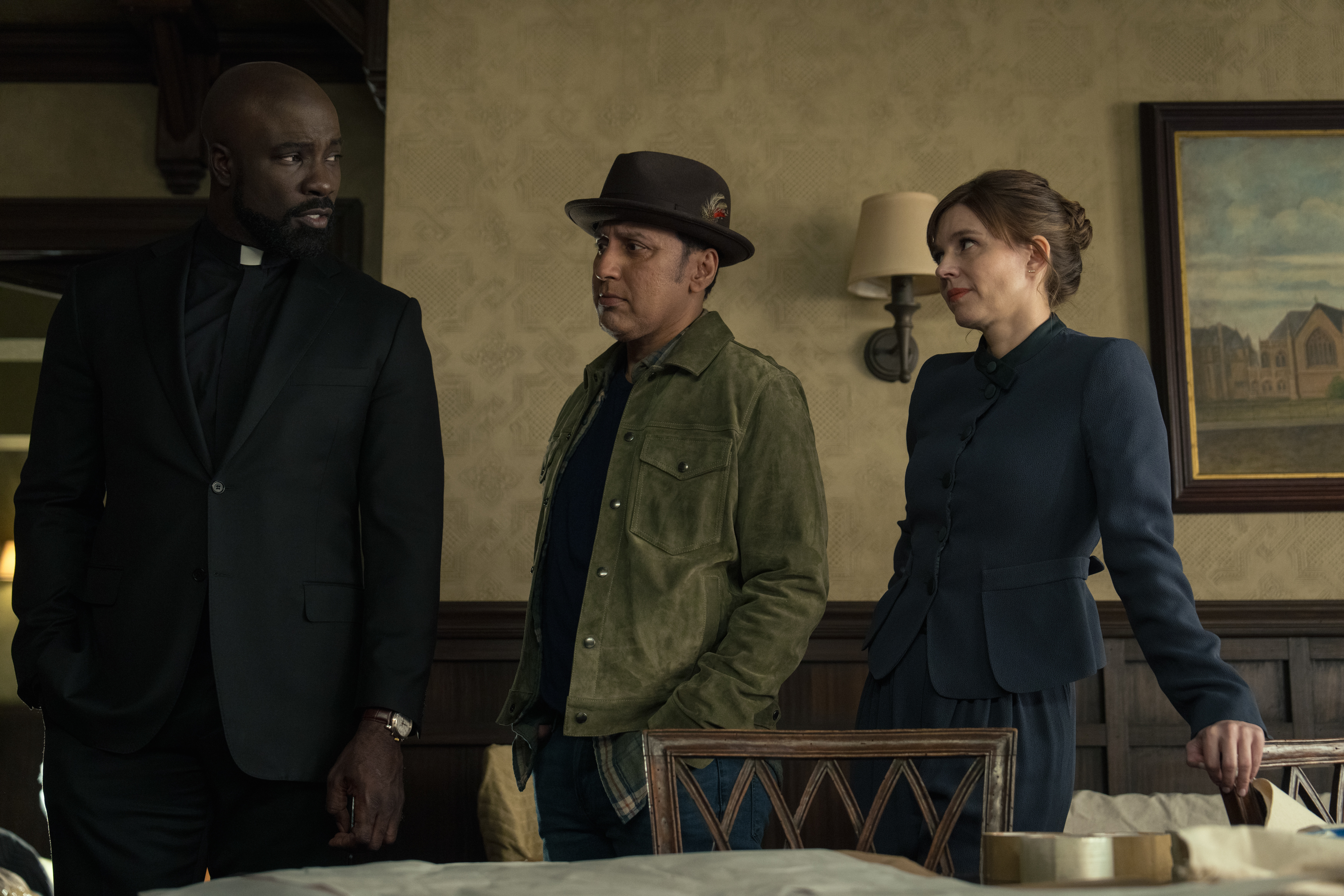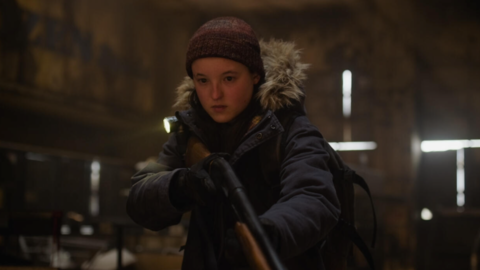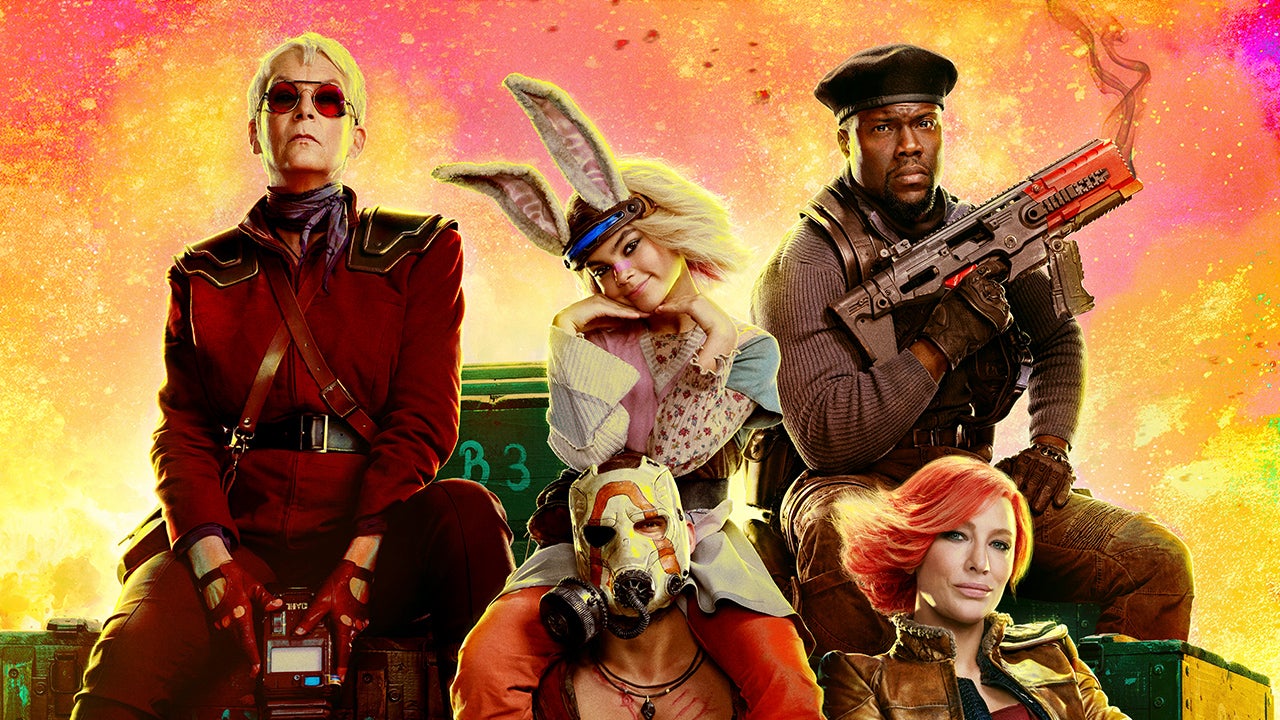
Evil always deserved better than it got. After weathering three changes of venue — first on CBS, then on nascent streaming service CBS All Access, then on the rebranded Paramount Plus — the horror series managed to draw critical acclaim and a faithful audience. It was canceled anyway in its fourth season and given an additional four episodes to tie off any loose ends. Many of those threads remain, partly in hopes of the show’s second coming on another platform; the show’s final episodes bear all the strain of a rushed and abbreviated conclusion. But it is fitting, in a way: this kind of ambiguity and uncertainty was where Evil lived and what made it feel so unlike anything else on TV.
Not that anyone would know it from a description, of course. Creators Robert and Michelle King shaped the series in the image of a typical procedural, where each week brought a new case to our central trio, who assess supernatural phenomena for the Catholic Church. If someone needs an exorcism, they evaluate the conditions. If someone witnesses a miracle, they investigate its authenticity. Psychologist Kristen Bouchard (Katja Herbers) is the skeptic, priest David Acosta (Mike Colter) is the believer, and perennial tech guy Ben Shakir (Aasif Mandvi) is also the skeptic.
For the pairing of believer and skeptic(s) alone, it’s hard to write about Evil without bringing up The X-Files. But it was much more than just a Catholic-flavored retread; where you’d be hard-pressed to find an X-Files episode that doesn’t validate the paranormal for the viewer, Evil played coy. Particularly in its early seasons, the series would rarely confirm the supernatural outright. There were always caveats, always rationalizations. People imagined demons and angels because they wanted to believe; their minds filtered the world through predetermined beliefs. In the first episode, Kristen found herself rattled when a man who claimed possession revealed impossible knowledge of her personal life, but he had merely been given stolen notes of her therapy sessions.
As the show went on, it became more explicit about the supernatural. The assessors’ nemesis, sinister therapist Leland Townsend (Michael Emerson), would interface with goat-headed demons in the light of day; Sister Andrea (Andrea Martin) would stomp, stab, and otherwise physically eradicate all sorts of ghoulish critters like a zealous exterminator. But even as Evil’s demons became more visible, much of the show’s pleasure still came from how it could write itself out of what might seem like a particularly unambiguous corner. The human capacity for evil, it recognized, could be just as fraught as a demonic influence. After all, isn’t it more disturbing for a mother to chase social media clout by faking a haunting that physically harms her children than for a ghost to be responsible?

The procedural structure primed us for something familiar, something explicable. Instead, Evil plunged us into a world of uncertainty, full of storylines that lacked clean resolutions. One of its most audacious closers found the assessors all set to exorcise a young boy who had begun to threaten his younger sister — only to discover that the parents killed the boy instead. In a later episode, the investigation into a police shooting simply stopped because it didn’t even make it to trial, with the cop at its center acquitted by a grand jury. Its frequent, distinct lack of answers never felt like a cheat or a shortcut so much as a logical reflection of the show’s focus on religion: faith, after all, is hardly given to concrete evidence.
Among horror more specifically, Evil stood out for its reluctance to simply coast on familiar frights, particularly in a field as crowded as religion and exorcism-based horror. So much of the genre confronts the world as it once was, extrapolating on what we’ve learned to fear through fiction. It still echoes the Satanic Panic or the advent of serial killers, often going so far as to be set in that distant past. Longlegs unfolds in the ’90s, while the whole Conjuring empire is firmly rooted in the decades before that. A steady stream of sequels and prequels to classic horror films carry forward the fears of yesteryear.
Like many procedurals (and like the creators’ other shows, The Good Wife and The Good Fight), Evil’s stories drew inspiration from current events. Often, this involved staring down the full breadth of new technology and its capacity for harm; one of the final episodes centered on a chatbot targeted at grieving people, while other cases involved VR games or stand-ins for Amazon and TikTok. The modern world formed the backbone of Evil’s themes, where a more interconnected society given over to invasive technology allows for bad things to find us more easily, or for bad actors to find each other.
At the same time, it’s easy to see why so much horror resists modern technology. It is too sleek, too sterile, too frictionless, absent the character of more tactile media. There’s a reason that cellphone signals are often the first casualty of a modern-day horror story; an atmosphere of dread and isolation is hard to cultivate when always-on technology seems designed to puncture it. Evil was certainly not immune to some hokey portrayals of the very technology it sought to critique — it just isn’t scary to see kids stumble around in VR goggles or to watch Ben thumb through TikTok.

But the secret of the series was that, between all the ruminating on modern society and the religious soul-searching, it never needed to be serious or even particularly scary. There was no small amount of camp behind Evil’s appeal. The odd, wince-inducing TV hacker line was all in good fun, next to Kristen’s dancing sleep paralysis demon, or Leland pulling up 8chan, or a laser-targeted takedown of the guy who made Law and Order. One episode would feature some impressive practical creature effects only for the next to put CGI angry eyes on a cat.
The immediate effect, of course, was pure entertainment value. Evil was so fun because it was so unpredictable, with everything from its silliest moments to its most astute all contributing toward that goal of setting the audience off balance. Here was a show that continued to push “grounded” explanations that might actually be more preposterous than demons walking the Earth, while also leaving space for profound questions about religious belief and its place in modern society — if, as several of its characters wondered aloud, it still has a place at all.
In a broader sense, the tonal mishmash made Evil uniquely suited to tackle the horrors of our era, where so many terrible realities are wrapped in nonsense. Its demons could be hilariously mundane, working out on an elliptical or fumbling with the mute button on a video call. To capture the noise, the disorientation, and the information overload of modern life, Evil had to be strange and singular. And it was, even when it was using some of the most familiar tools in the history of television. In the hands of this series, we saw just how far the concept of “evil” could truly reach — and how it could spread more efficiently than ever.
Source:https://www.polygon.com/tv/444900/evil-series-finale-review-good-cbs-kings








